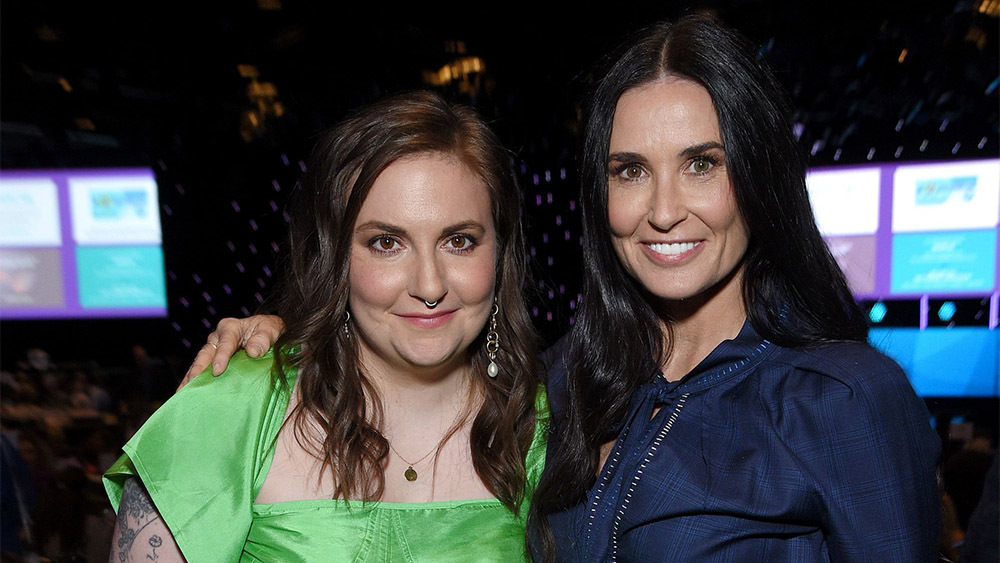Lena Dunham Opens Up About Addiction, Rehab at Friendly House Benefit


was the center of attention on Saturday afternoon at the Beverly Hilton Hotel — ironically, the same venue where she partied along with the cast of “Girls” for six straight years at the booze-fueled Golden Globes. But this award ceremony was a strictly sober affair: The 30th anniversary luncheon benefited Friendly House treatment center, which has been helping women to recover from addiction since 1951.
“Being sober in life is hard,” told Variety. “But being sober is the first step to facing all the things that made you want to hide in the first place.”
“Part of why I love Friendly Houses is because they don’t discriminate,” said Dunham, who celebrated a year of sobriety in April. “It’s not a rehab for the rich and famous. It’s a place where women who need help are never turned away for financial reasons. It’s sad that in this country, recovery has become a privilege, not a right.”
Dunham has amassed an impressive collection of awards since her 2010 debut as writer, director and star of “Tiny Furniture,” including a Golden Globe. But her Woman of the Year honor from Friendly House is “the most meaningful,” she said. “I joke: ‘Oh, my God. I’m getting an award for not doing drugs,'” said Dunham. “The recognition for my work did not come with the same sense of unity and personal satisfaction but it gave me a voice. Now I want to use it to support mental healthcare, trauma work and recovery.”
Demi Moore has also been vocal about her battle with addiction and the toll it has taken on her family and career. The veteran actress walked hand-in-hand with Dunham through a flurry of flashbulbs inside the ballroom. After the other honorees — Friendly House Emeritus board member Marcia Harrow and meditation guru Bob Roth — accepted their accolades, Moore took the stage to present Dunham with the Woman of the Year Award.
“You’re a fellow warrior out there carving a path that is not only authentic to you but redefining what those possibilities are for others,” she said. Dunham hugged and kissed Moore, then found herself alone in the spotlight. “This would be so much easier on Klonopin,” she joked.
Dunham reflected on her journey to self-acceptance and sobriety. “I didn’t think that I was a drug addict,” she said. (After all, she was taking prescription medication — not buying heroin in Washington Square Park — but “pills that I thought dulled my pain actually created it.”) She joked that media portrayals of addiction had left her with a skewed idea of what an addict is. “I thought drug addicts were depraved lunatics who wandered the streets, demanding crack from innocent children and flaunting their open wounds in public parks. And I was a successful, capable celebrity who wandered red carpets demanding attention and flaunting her open boobs on TV. It’s totally different,” she deadpanned, before becoming more serious.
“When I was dropped off at rehab, I thought it was the end of my life,” she recalled. “Seemingly overnight, I had lost almost all of what I hold dear: My relationships, my body and my career were in relative shambles.” But Dunham gained the support of other women who shared similar stories of loss and struggles with substance abuse, which eventually helped her to identify as an addict. “Even as a chronic over-sharer I lived in fear of anyone finding out,” Dunham said. “Will people still want to work with me, kiss me, hang out with me … and would everything I’d ever done be viewed through the lens of addiction?” she wondered.
As it turns out, Dunham’s greatest weakness has proven to be a source of strength in recovery. “Being me has sometimes hurt so much that I couldn’t bear it,” she told the crowd. “But being me is also a super-power, and it’s the same for all of you.” Now 18 months sober, Dunham is “living a life that’s beyond my wildest imagination,” she said. “And I’ll put my money on sober women any day — because a woman who has overcome an addiction can do f—ing anything.”
 Pathways Drug Rehabilitation Luxury Addiction Treatment & Detox Center
Pathways Drug Rehabilitation Luxury Addiction Treatment & Detox Center


